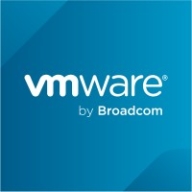

VMware Carbon Black Endpoint and Kaspersky Anti-Targeted Attack Platform are competing in the cybersecurity sector. VMware Carbon Black Endpoint is preferred for its advanced threat detection, while Kaspersky is valued for its comprehensive security measures.
Features: VMware Carbon Black Endpoint offers robust threat detection, innovative prevention capabilities, and strong endpoint coverage. Kaspersky Anti-Targeted Attack Platform provides wide-ranging security measures, effective integration with other Kaspersky products, and advanced threat intelligence.
Room for Improvement: VMware Carbon Black Endpoint could have better integration with other security tools, more intuitive alerting systems, and improved reporting features. Kaspersky Anti-Targeted Attack Platform needs enhancements in performance under heavy loads, faster update cycles, and more efficient resource usage.
Ease of Deployment and Customer Service: VMware Carbon Black Endpoint is easier to deploy but requires improved customer support. Kaspersky Anti-Targeted Attack Platform has a more complex deployment process but is backed by strong customer service.
Pricing and ROI: VMware Carbon Black Endpoint has a higher initial cost but yields strong ROI due to its superior threat detection. Kaspersky Anti-Targeted Attack Platform is competitively priced and offers good ROI through its comprehensive protection features.
| Product | Market Share (%) |
|---|---|
| VMware Carbon Black Endpoint | 1.8% |
| Kaspersky Anti-Targeted Attack Platform | 0.3% |
| Other | 97.9% |


| Company Size | Count |
|---|---|
| Small Business | 31 |
| Midsize Enterprise | 9 |
| Large Enterprise | 30 |
Today’s cybercriminals constantly design unique and innovative methods of penetration and compromise. To avoid perimeter prevention technologies they use social engineering, non-malware and supply chain attacks to operate under the radar of security designed to catch ‘bad’ traces. It’s not enough to just ‘know’ what’s bad or dangerous – enterprises need to understand what’s normal, and use AI-driven techniques that simplify and automate this process. Targeted Attack Analyzer is a machine learning engine that involves self-learning to establish the baseline of normal, legitimate activities of an entire network. Through continuous network telemetry collection it finds deviations, detects suspicious activities and predicts further malicious actions at the initial stages of multilayered attacks.
VMware Carbon Black Endpoint enhances endpoint security with its robust EDR, threat detection, and live response features. The cloud-based architecture supports remote management and easy setup while behavioral monitoring and dynamic grouping minimize security risks.
VMware Carbon Black Endpoint is designed for those seeking comprehensive endpoint protection. With its cloud-based deployment, organizations experience streamlined remote control and simplified rollout processes. Its behavioral monitoring, incident response capabilities, and firewall integration deliver advanced security measures. Although it addresses many security challenges, areas like manual alert management, on-demand scanning, and integration with systems like AlienVault USM require refinement. Improved UI, EDR components, and flexible pricing models would enhance user satisfaction. On-premise deployment infrastructure and compatibility issues with some operating systems need attention. Enhanced reporting, container security, and multi-tenancy support are also essential for fulfilling industry needs. AI-driven analysis and threat isolation empower companies by fostering proactive management.
What are the key features of VMware Carbon Black Endpoint?
What benefits should users look for when evaluating VMware Carbon Black Endpoint?
VMware Carbon Black Endpoint finds extensive application in industries focused on stringent security requirements. Managed security service providers leverage its capabilities to deliver comprehensive protection to multiple clients worldwide. Organizations use it primarily for antivirus protection and incident management, integrating it with their existing security frameworks to strengthen endpoint visibility and real-time threat prevention. Its advanced detection and application control features make it a preferred choice in industries that prioritize robust security measures. However, it requires improvements in terms of system compatibility and customization flexibility to better serve diverse industry environments.
We monitor all Endpoint Detection and Response (EDR) reviews to prevent fraudulent reviews and keep review quality high. We do not post reviews by company employees or direct competitors. We validate each review for authenticity via cross-reference with LinkedIn, and personal follow-up with the reviewer when necessary.